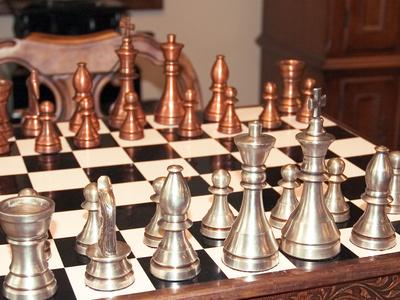While it may be painful to watch your children grow so quickly, one good thing about them hitting the preteen and teenage years is that your days of playing simple, not-so-interesting-for-you games are over. Children who are age 12 and up are able to play games that are more complex and that may be enjoyable for adults as well. Break out the deck of cards and some fun board games for a game night that will entertain everyone.
Significance
When children are small, games often teach them the basics, such as how to count, the consequences of making the wrong decision and how to get along with others. Children who are 12 and up should already know those things. Games for older children, such as Risk or chess, can help them learn to develop strategies. Other games can reinforce skills learned in school, such as Scrabble, which helps build vocabulary, or Sudoku, which helps them learn logic.
Types
Games for older children come in all shapes. They can learn card games that are have more detailed rules than Crazy 8s or Go Fish, such as Hearts or Spades. Board games move beyond the simple picture-centered games of their youth and may feature a great deal of reading and additional pieces. Older children can also go beyond the basic rules of tag and play active games that require plotting to avoid the person who is “it.” They may also enjoy going on scavenger or treasure hunts.
Time Frame
Games for children 12 and up can last longer than games designed for smaller children, since their attention span should be more developed. This means you can easily devote an entire afternoon to playing a single round of a game, such as Monopoly or Capture the Flag. The longer game length makes planning an afternoon with your child simpler, since you are no longer left scrambling to come up with a new activity every 20 minutes.
Size
Some games are designed for a “typical” family to play, while others can accommodate a bigger group. Active, outdoor games and scavenger hunts may require more people. Children who are 12 and up have also reached an age where they may be able to play a game quietly by themselves. If you have an only child, teach him solo games, such as solitaire, so that he has the means to entertain himself without having to resort to sitting in front of the television or computer.
Warning
As games become more complex, so can emotions during the game. Monopoly, for instance, is infamous for nearly always ending in an argument. If you sense that your child and his friends are becoming angry at each other during a drawn-out game, ask them all to take a step back and remember they are supposed to be having fun.
Photo Credit
- chess board image by Michael Shake from Fotolia.com





